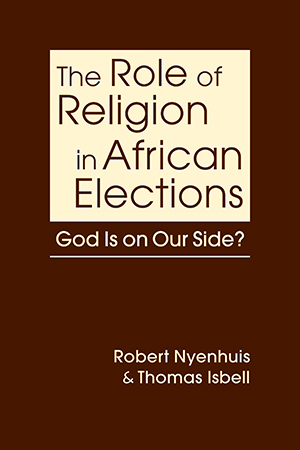BOOKS
The Repudiation [a novel]Rachid Boudjedra, translated by Golda Lambrova, with an introduction by Heidi Abdel Jaouod In this turbulent novel of shame, violence, and hypocritical morality, the adolescent son of a repudiated mother grows up in a hostile, erotic, bourgeois world, where he must fight for his own soul. Using violence against violence, the young hero seeks to realize his better nature by overcoming the powers of hedonism, religious conformity, and tribalism. First published in French in 1969. More > | ![The Repudiation [a novel]](/uploads/t66f6e7b9d02fc.jpg) |
The Resilience of the State: Democracy and the Challenges of GlobalizationSamy Cohen, translated by Jonathan Derrick In this politically incorrect essay, Samy Cohen, one of France's leading specialists in international relations, attacks an established sacred cow: the theory of state decline. According to the conventional wisdom, states are on the wane under the impact of globalization, and frontiers are being gradually abolished; the outcome could be at worst an anarchic world, at best an More > |  |
The Resurgence of Populism in Latin AmericaRobert R. Barr Choice Outstanding Academic Book! Latin America has recently experienced a powerful resurgence of populism, a phenomenon that has had an outsized influence on the region's politics. What explains this resurgence? And what is distinctive about this new populist era? Answering these questions, Robert Barr offers a refined conceptualization of populism and an intriguing explanation of its More > |  |
The Return of Culture and Identity in IR TheoryYosef Lapid and Friedrich Kratochwil, editors Unanticipated epochal events associated with the demise of the Cold War have prompted the recognition that the post-Cold War order is transforming itself culturally even faster than it is changing geopolitically or economically. Within this context, this volume explores the scope and promise of the "return" of culture and identity to the IR theoretical agenda. The authors address a More > |  |
The Rienner Anthology of African LiteratureAnthonia C. Kalu, editor ForeWord Magazine's Reference Book of the Year, 2007! Ranging from ancient cultures to the present century, from Africa's rich oral traditions to its contemporary fiction, poetry, and drama, this long-awaited comprehensive anthology reflects the enduring themes of African literature. The selections, drawn from the length and breadth of the continent, reveal the richness of More > |  |
The Rise and Fall of a Violent Crime Wave: Crack Cocaine and the Construction of a Social Crime ProblemHenry Brownstein This book tells the story of how government policy-makers, law enforcement officials, and the news media effectively used modest shifts in the official rate of violent crime to construct a crisis of crime and violence. More > |
The Rise of China's Industrial Policy, 1978 to 2020Barry Naughton Can China's remarkable, rapid emergence as a large economy and technological power be attributed to specific policies, and more generally to a Chinese program of industrial policy? More simply put: What is it that China has done right? This is the fundamental question that Barry Naughton addresses in his extended essay. Disentangling the threads of China's industrial policies since More > |  |
The Role of Religion in African Elections: God Is on Our Side?Robert Nyenhuis and Thomas Isbell Does religion play a significant role in voting behavior in sub-Saharan Africa? The perception has long been that religious identity has little impact on electoral decisionmaking, with many countries across the continent formally banning political parties from organizing along religion lines or making explicitly religious campaign appeals. But is that in fact the case in today's More > |  |
The Roots of Haitian DespotismRobert Fatton Jr. Though founded in the wake of a revolution that embodied its slave population's quest for freedom and equality, Haiti has endured a history marked by an unending pattern of repressive dictatorial regimes. Exploring that history, Robert Fatton offers a rigorous explanation of how and why the legacy of colonialism, the struggle against slavery, and the intersection of the domestic and world More > |  |
The Roots of Somali Political CultureM.J. Fox The fragmentation of the former Somali Democratic Republic into three distinctive entities, together with the events that have ensued since then, make for a complex political puzzle that raises a plethora of questions. M.J. Fox explores some of the most fundamental of those questions: Have the "three Somalias" of today always been as disparate as they are now? How deeply rooted are More > |  |







